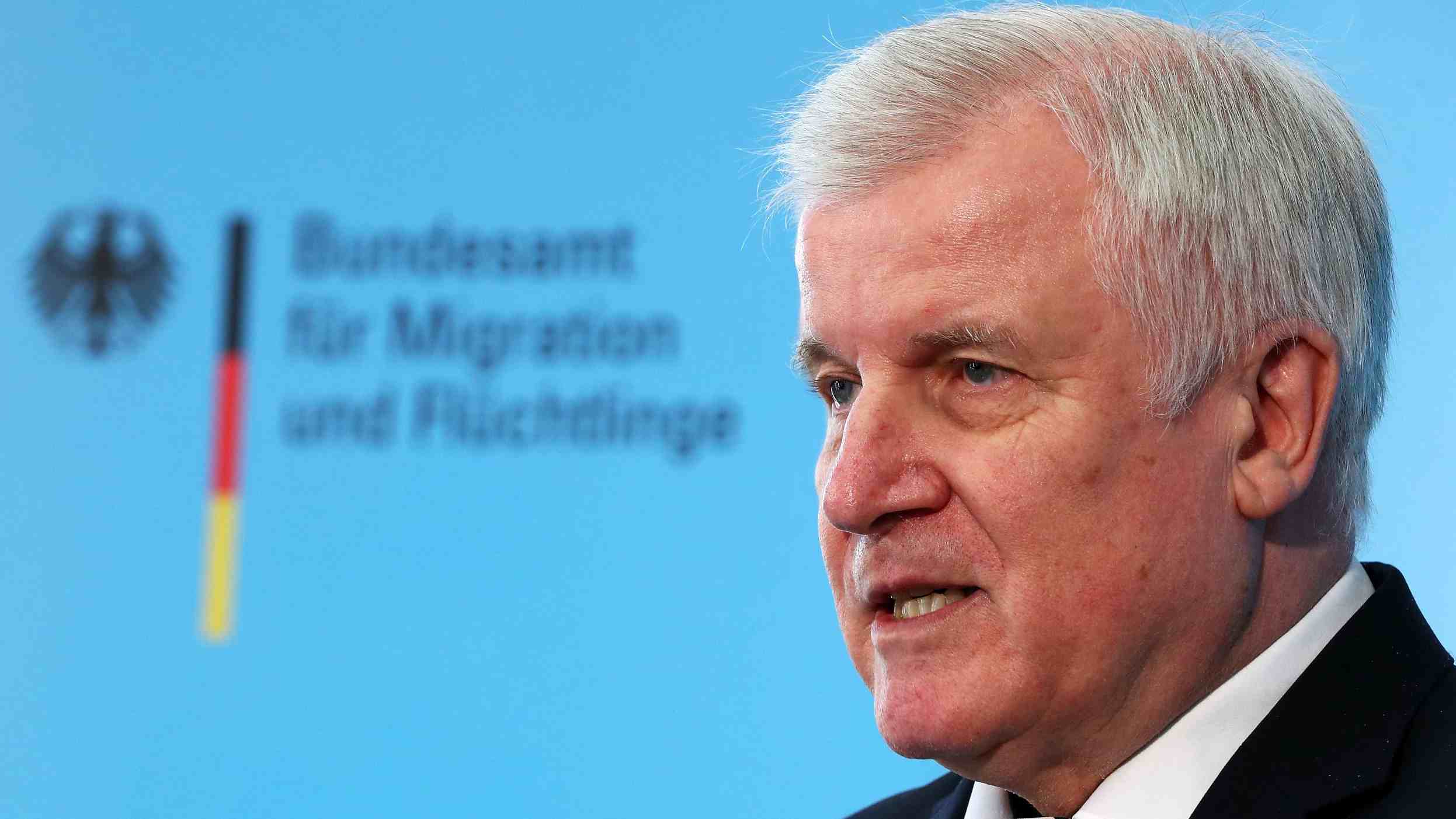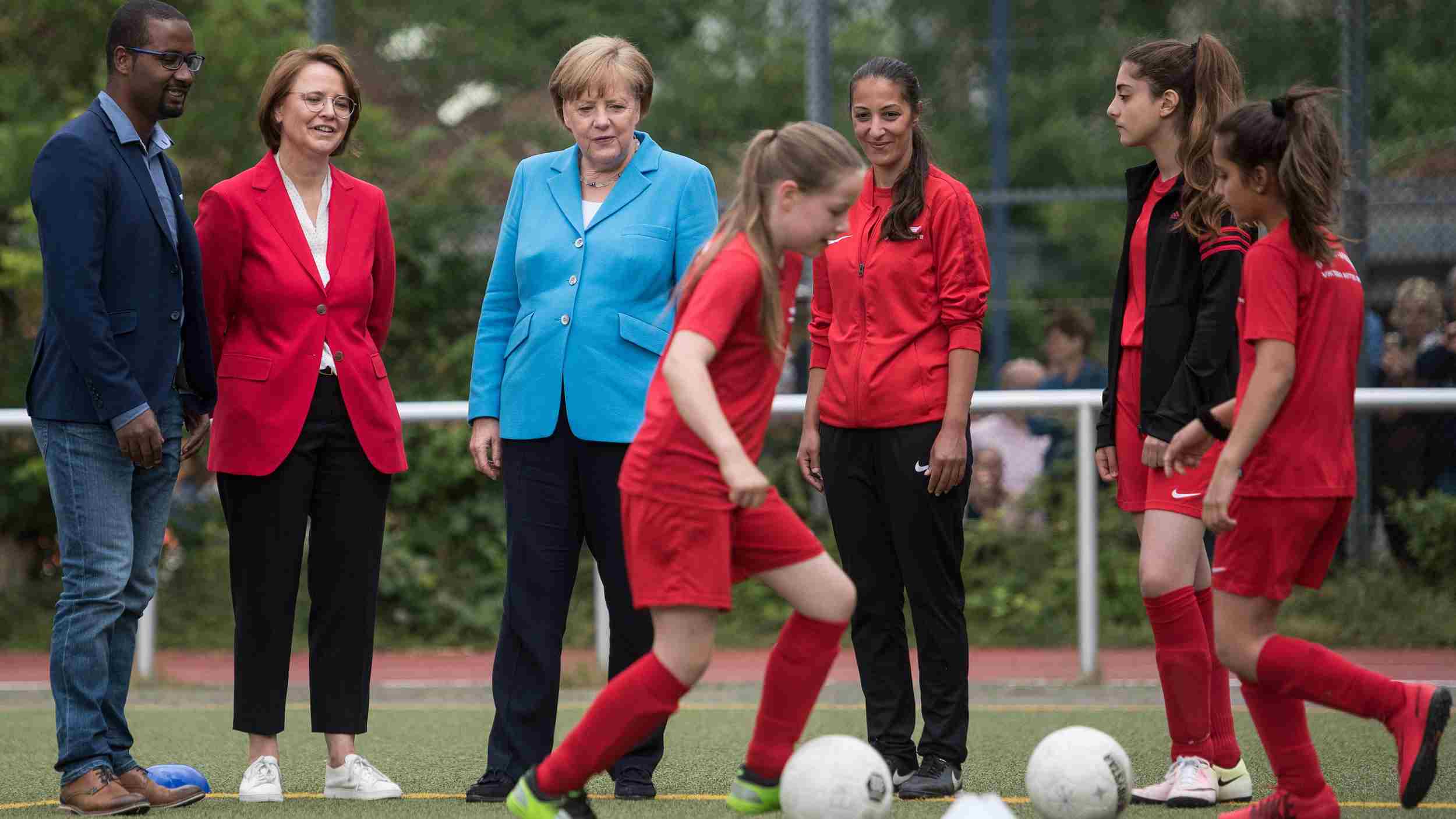
Politics
12:57, 18-Jun-2018
Crunch time for Merkel as Seehofer mulls migration options
By John Goodrich
03:28

Monday could be make-or-break for German Chancellor Angela Merkel and her three-month-old coalition government, as a migration spat between the four-term leader and her interior minister Horst Seehofer is set to come to a head.
Seehofer is due to meet with his colleagues in the Christian Social Union (CSU), the long-term ally of Merkel's Christian Democratic Union (CDU), to decide whether to press ahead with a hardline migration policy. The chancellor has previously opposed her interior minister's proposal to turn away asylum seekers who have no identification or have been registered elsewhere in the EU.
The interior minister, who is also chairman of the CSU, could attempt to implement the policy in defiance of Merkel, or opt to offer the German leader more time to seek a solution. Neither option gives the chancellor an easy way out.

German Interior Minister Horst Seehofer speaks during a press conference following a visit to the Federal Office for Migration and Refugees on April 6, 2018 in Nuremberg, southern Germany. /VCG Photo
German Interior Minister Horst Seehofer speaks during a press conference following a visit to the Federal Office for Migration and Refugees on April 6, 2018 in Nuremberg, southern Germany. /VCG Photo
A dispute between the parties that has simmered since Merkel opened Germany's doors to migrants fleeing the Middle East in 2015 boiled over last week when the CSU indicated Seehofer could implement his policy without the chancellor's endorsement.
Analysts have linked the interior minister's stance to the rise of the right-wing Alternative for Germany (AfD), which looks set to challenge the Bavarian CSU's majority in the region's parliament in elections due in October.
Read more
The influx of migrants to the EU over the past three years has boosted populist and far-right parties in several European countries, and Merkel's "open door" policy is widely thought to have hampered her in last year's federal elections.
Merkel has warned that unilateral action would have far-reaching consequences for the European Union (EU) and the free-border Schengen area. She is negotiating a new EU-wide policy and is seeking bilateral deals with countries including Italy and Greece, which are typically the first port of call for migrants entering the bloc.

German Chancellor Angela Merkel (C) looks on as young girls train during a program to encourage integration of children with foreign roots through football on June 13, 2018 in Berlin, Germany. /VCG Photo
German Chancellor Angela Merkel (C) looks on as young girls train during a program to encourage integration of children with foreign roots through football on June 13, 2018 in Berlin, Germany. /VCG Photo
Seehofer, who would likely be fired if he defied Merkel, indicated on Sunday he could be prepared to compromise. He told Bild that "it is not in the CSU's interest to topple the chancellor, to dissolve the CDU-CSU union or to break up the coalition."
"The situation is serious but it can be overcome," he added in a guest column in the Frankfurter Allgemeine paper, saying clinching an EU deal at a June 28-29 summit was crucial. He called on the EU to guarantee the protection of the bloc's external borders, to fairly distribute people allowed to stay and quickly return those without that right.
A CSU spokesperson on Sunday denied a report in newspaper Bild that the party would give Merkel two weeks until the EU summit to get a European solution.
Meanwhile an ally of Seehofer known as "tough dog", Hans-Eckhard Sommer, is poised to take over as head of the Federal Office of Migration and Refugees, Deutsche Welle reported on Sunday.
Merkel is due to meet Italian Prime Minister Giuseppe Conte on Monday, at the start of a busy week for the German chancellor.

SITEMAP
Copyright © 2018 CGTN. Beijing ICP prepared NO.16065310-3
Copyright © 2018 CGTN. Beijing ICP prepared NO.16065310-3